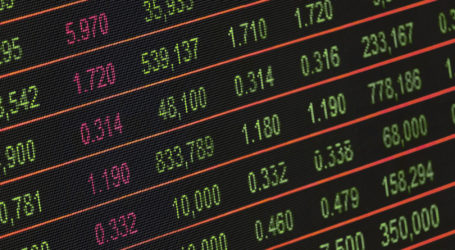Europe Calls for Tougher Rules on Global Markets
Sometimes it’s not just what is said that counts, but the way it is said. And if tone is anything to go by, the leaders of the European Union’s largest economies are dead serious about cleaning up global finance markets. On Sunday, officials from eight E.U. countries wound up an economic summit in Berlin calling for tougher regulations on international financial markets—including secretive hedge funds and the tax havens they often rely on to do business. The question is: will the U.S., the biggest financial player in the world, ever agree to the binding international regulation the Europeans seek?
The way they’re talking, it sounds as if many European leaders don’t want to give their American peers much choice in the matter. German host Chancellor Angela Merkel said the group—France, Italy, Britain, Luxembourg, Spain, the Netherlands and Czech Republic—had agreed to measures they will insist be adopted at the G20 meeting in London in early April. “All financial markets, products and participants including hedge funds and other private pools of capital which may pose a systematic risk must be subjected to appropriate oversight or regulation,” Merkel said in a summit statement. “A clear message and concrete action are necessary to engender new confidence in the markets and to put the world back on a path toward more growth and employment.” (See 25 people to blame for the financial crisis.)
French President Nicolas Sarkozy was just as adamant. “We can’t afford failure in London,” he said after Sunday’s meeting. “We have to succeed and we can’t accept that anyone or anything will get in the way of this summit, which will be a historic summit. We will be successful [because] if we fail there will be no safety net.”
There’s just one problem with Europe’s position: it’s far from certain Washington is going to accept strict new regulations imposed on the U.S. economy by outsiders. President Barack Obama wooed the world with talk of change, but resistance to regulation remains strong in the U.S, where the ability of companies and markets to invent, innovate, and take risks remains fundamental to the American dream. “There’s an enduring view in the U.S. that the national economy is a powerful machine that crashes every now and again, but which eventually fixes itself and roars back to the front of the pack,” says Mark Duckenfield, a professor of politics in the world economy at the London School of Economics. “The European leaders proposing this international regulation are generally conservative, not wild-eyed socialists. Still, any effort to come up with international rules applicable to the U.S. usually raises fears about American businesses finding themselves hog-tied as a result—which gets Joe the Plumber types shouting bloody murder.” (See pictures of the global financial crisis.)
Duckenfield notes that political conservatives such as Sarkozy and Merkel have a significant ally to their cause inBritish Prime Minister Gordon Brown, who, in spite of his nominally leftist Labour Party affiliation, has always been a market liberal. As recently as 2007, Brown opposed European calls for better regulation of hedge funds—investment schemes that had helped made London Europe’s finance capital. But on Sunday, Brown wrote in Britain’s Observer newspaper that finance markets and banks should be obliged to factor the collective interest of long-term economic gain into their activities, an effort he said should serve as “the foundation on which a new system must be based”.
Sarkozy went even further, demanding new regulations that would impose responsibility and moderation where excess once reigned. After the meeting, Sarkozy said that “the violence of the [economic] crisis, its depth, call for really profound changes.” He also claimed the European objective going into the G20 meeting is to ” to start capitalism again from scratch, [and] make it more moral”.
Dramatic stuff—but will it ever fly in Washington? Or even everywhere in Europe? “If I put it very tenderly, the divergence in opinions was rather big,” said Czech Prime Minister Mirek Topolanek, whose country currently holds the E.U.’s rotating presidency. In Sunday’s meeting, Topolanek defended the liberal market orthodoxy of many central European members and the U.S. is likely to look to countries like the Czech Republic for support in defining some “lowest-common-denominator rules” that everyone can accept, says Duckenfield. Which may leave other European leaders talking tough but unable to get their way.










